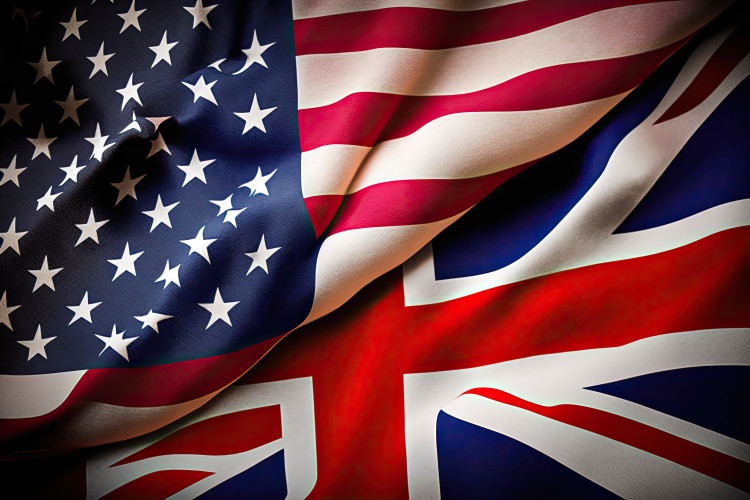McVitie’s Digestives, Walkers crisps, English breakfast tea, Stilton and Red Leicester cheeses, English sparkling wine, Scotch whiskey—all beloved favourites for American consumers, and all affected by Trump’s latest set of tariffs.
While some Americans may need to forgo these comforts or pay the inflated price, on a more macrolevel, Trump’s dramatic tariffs plans are threatening another deep economic crisis, similar to the 2008 financial crash and the Covid pandemic. Fears of a global recession abound and businesses both sides of the Atlantic are grappling to count the costs in their supply chains.
A lot of discussion around the impending trade deal between the UK and the US is centring on the tech industry, and taxes on American digital firms specifically. At the same time, many column inches this week are being taken up by acute concerns from the pharmaceutical industry – with the UK’s ambassador, Lord Mandelson, and other senior government negotiators scrambling to avoid US import levies on medicines.
At home, the Government is trying its best to reassure the general business community. As part of these efforts, the Department for Business and Trade launched a ‘call for input’ from businesses that they plan to use to inform the UK’s response. The EU, meanwhile, is deciding on the Bloc’s response whereby agricultural and industrial commodities will feature, although the recent 90-day pause adds more complexity there.
At some point soon, the UK Government must turn its attention to food and drink bosses to assuage their concerns.
This is an industry which exported nearly £60 billion worth of goods to the US last year. According to a recent Food and Drink Federation (FDF) report, the UK’s food and drink industry contributes £37 billion to the UK economy each year, therefore they are essential to delivering the Government’s growth agenda. Producers will have taken some comfort from this week’s announcement of suspended import tariffs on a range of produce, aiming to alleviate price rises. Yet US exporters still have major worries in an increasingly challenging and shifting trading landscape.
Concerns from the industry:
Contrary to Trump’s current messaging, the UK actually has a trade surplus with the US in the food and drink industry—exporting £1.6 billion last year and receiving about £1 billion in US imports. This totals to the US receiving roughly 10% of the UK’s total food and drink exports.
Business should take comfort from this fact, making a trade deal – and a possible tariff reduction – more likely. That said, firms should plan for the 10% baseline to remain in place, at least for the time being. The mood music from Washington is that this is not up negotiation with anyone.
The US is the largest market for British agri-food products outside of the EU. The National Farmers Union are taking a leading role in working with Government on mitigating the impact on tariffs and finding solutions to market disruption.
Despite Trump’s love for Scotland, Scotch whiskey, an industry that punches above its weight on the world stage, is being hit with the tariffs. The US is the largest export market by value for Scotch, with one distiller telling the media that for them, the 10% tariffs ‘represents 10% of our sales’.
Also impacting Scotland’s economy is salmon, with the US the second most common export market for Scottish salmon, only behind France and equating to £225 million in 2024.
FDF is also highlighting the disproportionately impact on small and medium sized businesses who will be affected by these tariffs. The companies making the heritage products that Americans really love are often made up by the 12,000 SMEs in the sector.
It’s not just domestic producers that are suffering. Recent polling of the public found that just over half of UK consumers said they were less likely to buy American goods now compared to a year ago. The Liberal Democrats are pushing the Government to adopt a ‘Buy British’ campaign, similar to the one launched in Canada in response to Trump’s earlier tariffs placed on its northern neighbour. The Chancellor has ruled this out for the time being, as the Government hopes to firm up their trade agreement with the US.
What is coming next, and how should businesses engage?
With the UK’s Food Strategy due this summer, there are now increased calls for food security and more resilient food supply chains to be a focus given the geopolitical tensions and instability around the world. Firms with a UK footprint should offer their perspective, backed up by evidence, noting areas ripe for intervention and support from government departments. A UK Trade Strategy is also in the works. Again, it will be important to make the case for food and drink industries to shape a more favourable trading environment with major international markets.
More immediately, businesses should be speaking with the Department for Business and Trade about the impacts on their businesses and sector more widely. The official routes of doing this via the consultation close in less than a month.
Movement on a trade deal with the US should come imminently with UK Government officials briefing to the media that they have a deal sitting on Trump’s desk for sign-off.
In the meantime, exporters need to act now to assess the impacts across their supply chains – and consider US protectionism the new normal.
For more information about how tariffs may impact the UK’s food and drink businesses or to get more general support on your government relations strategies, please reach out.






